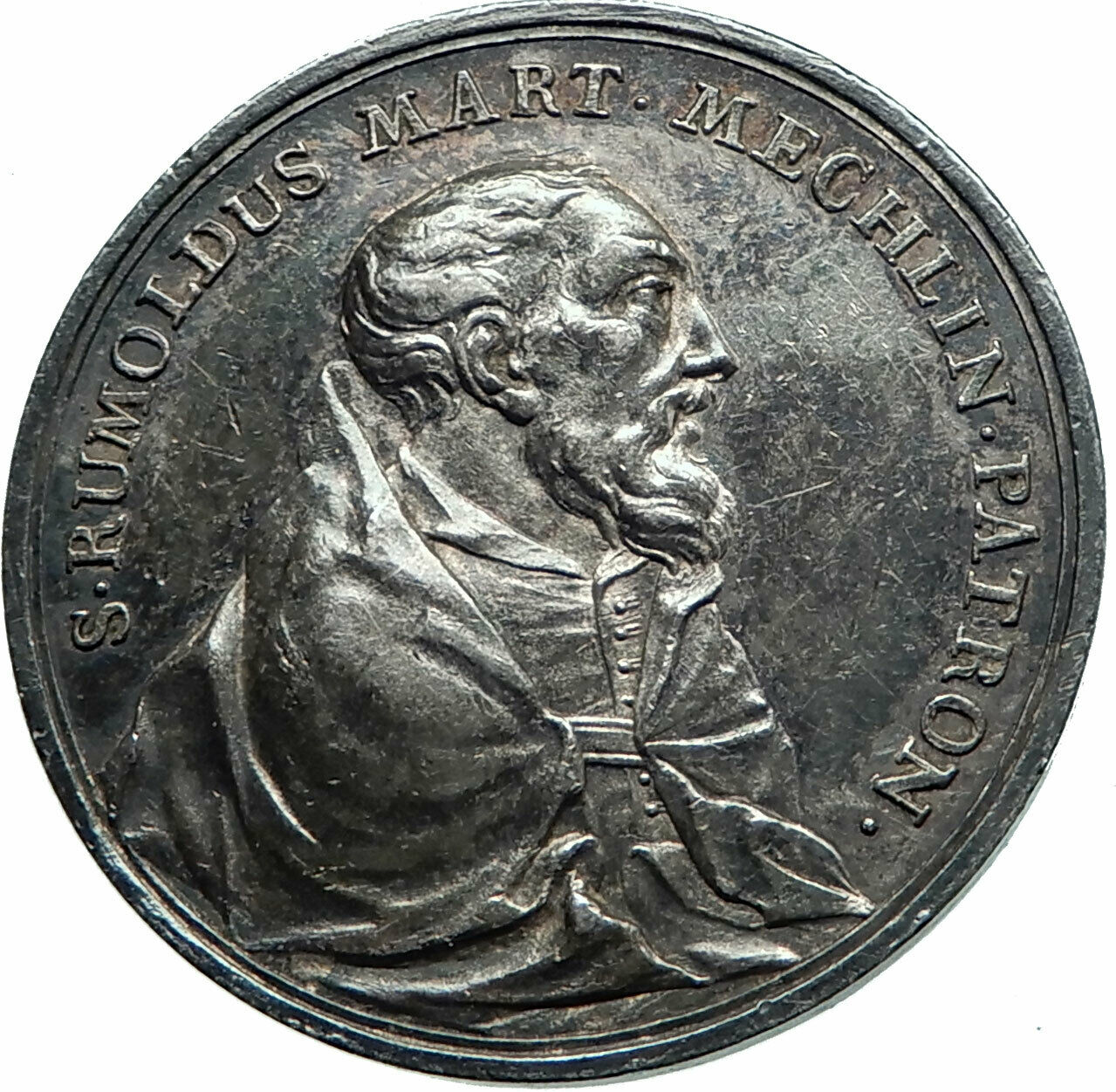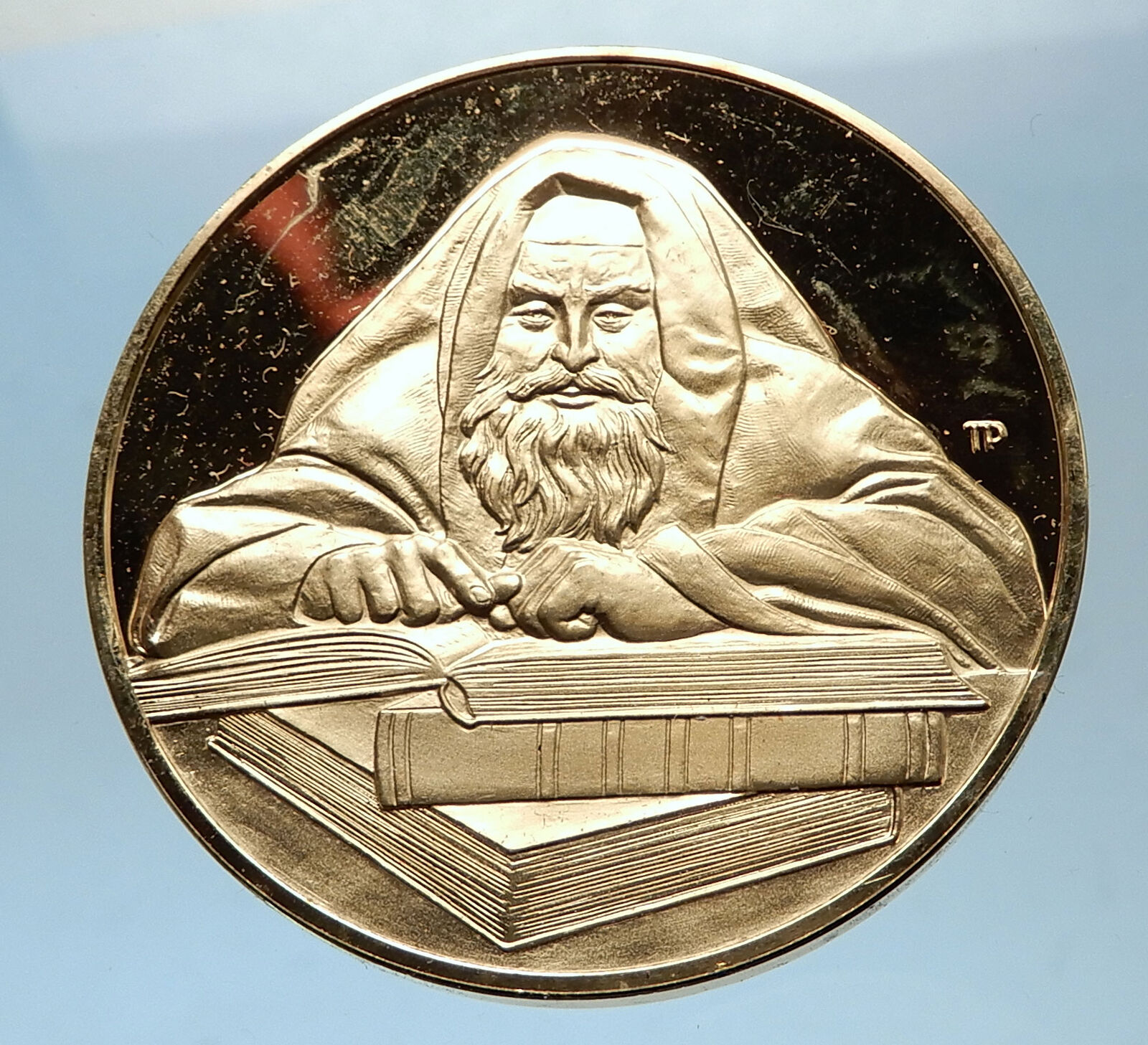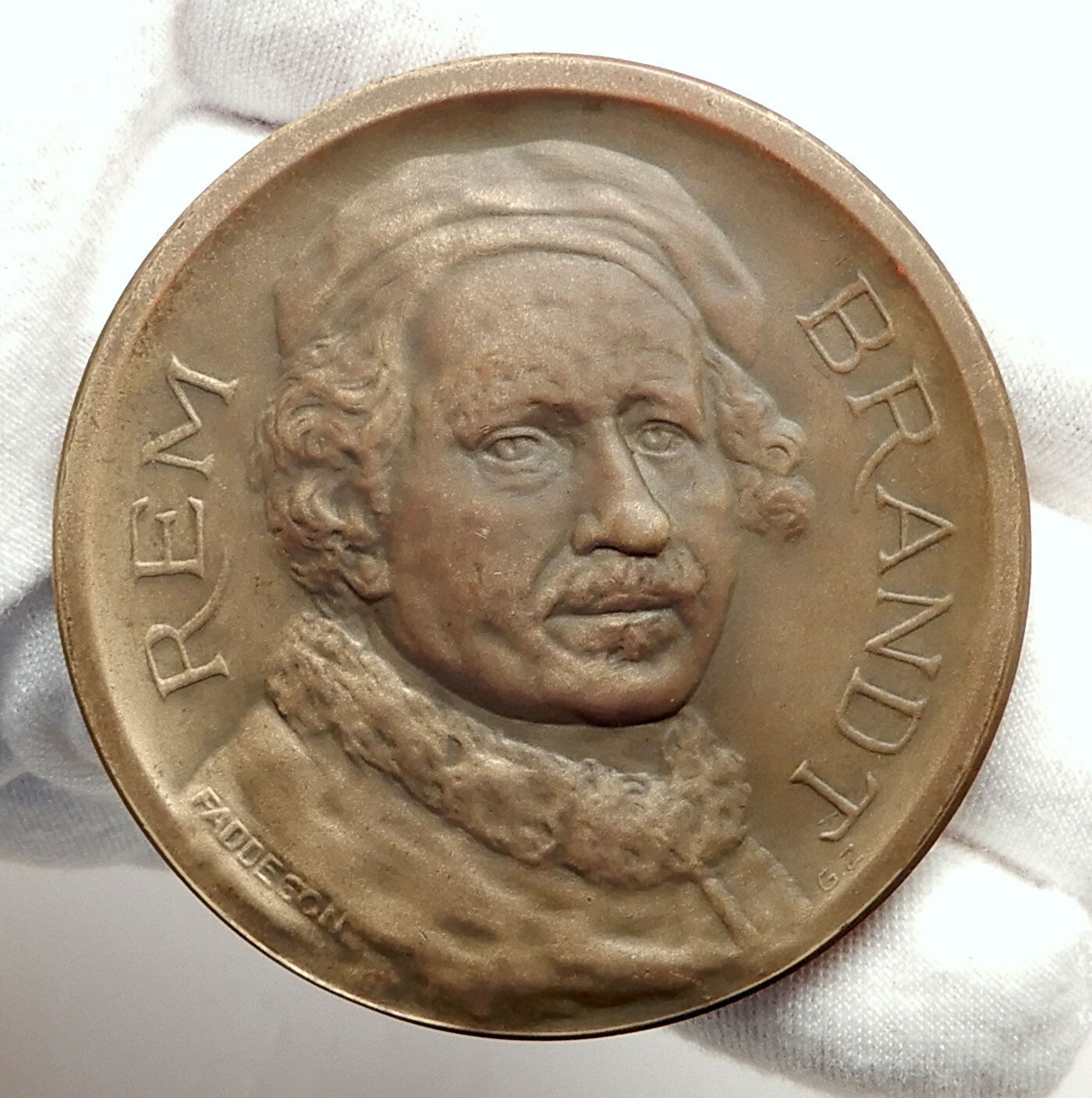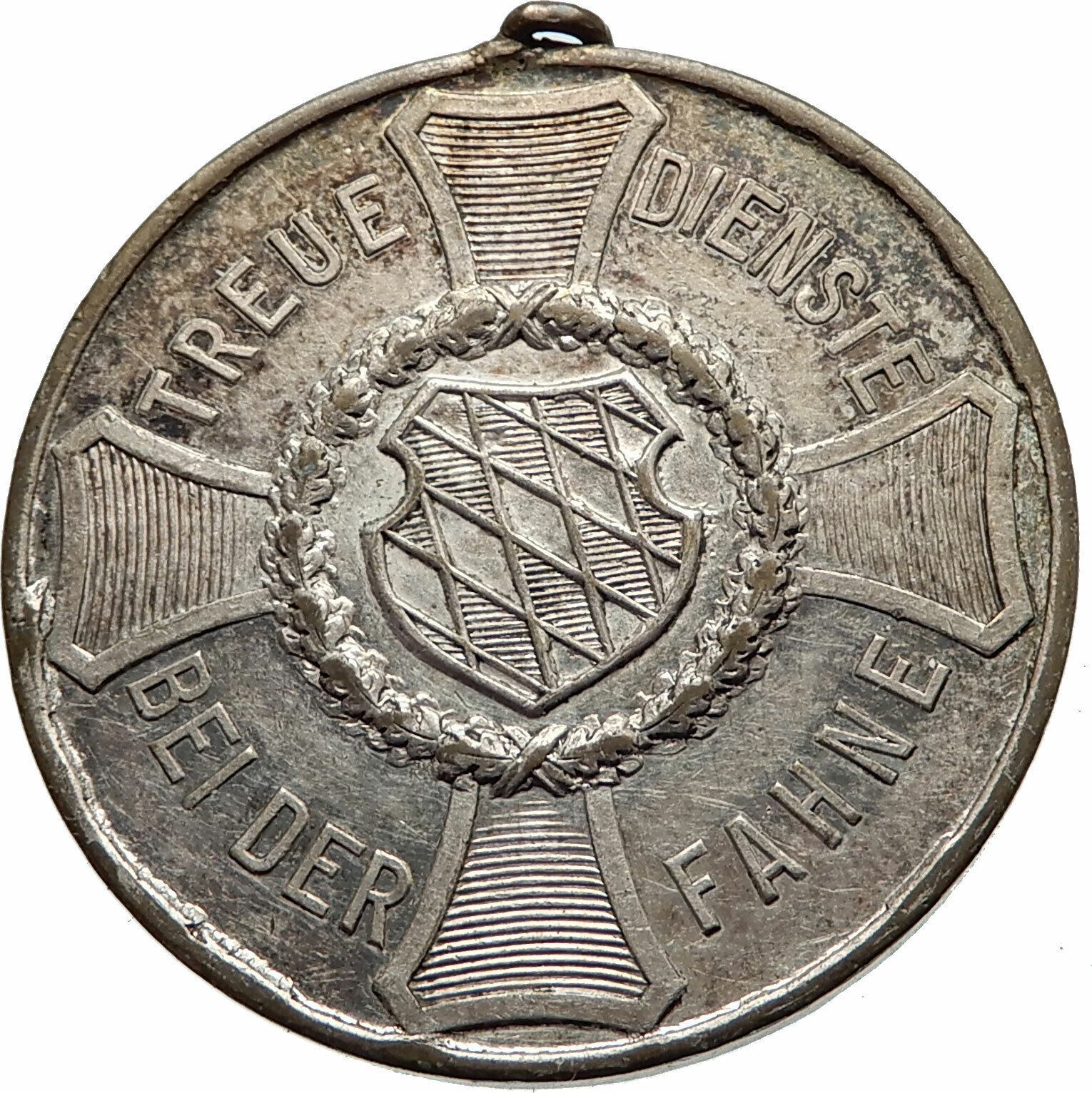|
France. League of Patriots Founding.
Franco-Prussian War Commemorative
1882 Bronze Medal 23mm (8.42 grams)
LIGVE DES PATRIOTES 1870 QVAND 18 … MME around and side of a patriotic heroic statue with soldier protecting personification of France.
QUI VIVE? FRANCE ! MAI 1882, spear and cloak in front of backgroudn scene of French hillside towns.
You are bidding on the exact item pictured, provided with a Certificate of Authenticity and Lifetime Guarantee of Authenticity.
The Franco-Prussian War or Franco-German War, often referred to in France as the War of 1870, was a conflict between the Second French Empire and the North German Confederation led by the Kingdom of Prussia. Lasting from 19 July 1870 to 28 January 1871, the conflict was caused primarily by France’s determination to reassert its dominant position in continental Europe, which appeared in question following the decisive Prussian victory over Austria in 1866.[12] According to some historians, Prussian chancellor Otto von Bismarck deliberately provoked the French into declaring war on Prussia in order to induce four independent southern German states�”Baden, Württemberg, Bavaria and Hesse-Darmstadt�”to join the North German Confederation; other historians contend that Bismarck exploited the circumstances as they unfolded. All agree that Bismarck recognized the potential for new German alliances, given the situation as a whole.
France mobilised its army on 15 July 1870, leading the North German Confederation to respond with its own mobilisation later that day. On 16 July 1870, the French parliament voted to declare war on Prussia; France invaded German territory on 2 August. The German coalition mobilised its troops much more effectively than the French and invaded northeastern France on 4 August. German forces were superior in numbers, training, and leadership and made more effective use of modern technology, particularly railways and artillery.
A series of swift Prussian and German victories in eastern France, culminating in the Siege of Metz and the Battle of Sedan, resulted in the capture of the French Emperor Napoleon III and the decisive defeat of the army of the Second Empire; a Government of National Defense was formed in Paris on 4 September and continued the war for another five months. German forces fought and defeated new French armies in northern France, then besieged Paris for over four months before it fell on 28 January 1871, effectively ending the war.
In the waning days of the war, with German victory all but assured, the German states proclaimed their union as the German Empire under the Prussian king Wilhelm I and Chancellor Bismarck. With the notable exception of Austria, the vast majority of Germans were united under a nation-state for the first time. Following an armistice with France, the Treaty of Frankfurt was signed on 10 May 1871, giving Germany billions of francs in war indemnity, as well as most of Alsace and parts of Lorraine, which became the Imperial Territory of Alsace-Lorraine (Reichsland Elsaß-Lothringen).
The war had a lasting impact on Europe. By hastening German unification, the war significantly altered the balance of power on the continent; with the new German nation state supplanting France as the dominant European land power. Bismarck maintained great authority in international affairs for two decades, developing a reputation for adept and pragmatic diplomacy that raised Germany’s global stature and influence. In France, it brought a final end to imperial rule and began the first lasting republican government. Resentment over France’s defeat triggered the Paris Commune, a revolutionary uprising which seized and held power for two months before its bloody suppression; the event would influence the politics and policies of the Third Republic.
The League of Patriots (French: Ligue des Patriotes) was a French far-right league, founded in 1882 by the nationalist poet Paul Déroulède, historian Henri Martin and politician Félix Faure. The Ligue began as a non-partisan nationalist league, supported among others by writer Victor Hugo, calling for ‘revanche’ (revenge for the French defeat during the Franco-Prussian War) against the German Empire. One of the original purposes of the Ligue was to offer pre-military training, allowing members to participate in gymnastics and rifle shooting.
The league was formed with Léon Gambetta’s blessing; Gambetta’s education ministry included Déroulède in its Military Education Commission, which was also formed in 1882. However, during the Boulanger affair, Déroulède co-opted the Ligue to support the general, alienating many Republican members. After Boulanger’s exile in 1889, the Ligue was suppressed by the government.
Upon the discovery that Victoria, the future German Empress, had stayed in Versailles and Saint-Cloud (a town destroyed during the Franco-Prussian War) during her unofficial visit to France in 1891, the Ligue incited a public uproar. The disorder surrounding the visit eventually resulted in the Crown Princess cutting her trip short and being escorted under French military protection, for her safety, to Calais to board a ship to England.
In 1898, the Ligue was revived to become involved in the Dreyfus affair engaging in noisy and often violent anti-Semitic, right-wing protests. At this stage, the Ligue is estimated to have had 60,000 members, largely in Paris.
After a failed coup d’état attempt in 1899 at the state funeral of President Félix Faure, one of the Ligue’s founders who later distanced himself from its positions, Paul Déroulède was sentenced to exile from France for 10 years; the Ligue was again dissolved. Nevertheless, the nationalist author Maurice Barrès became again its leader in 1914, at the eve of World War I.[3] Upon Barrès’s death, General Édouard de Castelnau became leader, with Alexandre Millerand as president of honour. De Castelnau became head of the Fédération Nationale Catholique, which made him resign the leadership in 1926, as well as the presidency in 1932. The Ligue was definitely dissolved in the late 1930s, after General Denis Auguste Duchêne briefly reformed it in 1939.
  Francee, officially the French Republic (French: République française), is a sovereign state comprising territory in western Europe and several overseas regions and territories. The European part of France, called Metropolitan France, extends from the Mediterranean Sea to the English Channel and the North Sea, and from the Rhine to the Atlantic Ocean. France spans 640,679 square kilometres (247,368 sq mi) and has a total population of 67 million. It is a unitary semi-presidential republic with the capital in Paris, the country’s largest city and main cultural and commercial centre. The Constitution of France establishes the state as secular and democratic, with its sovereignty derived from the people. Francee, officially the French Republic (French: République française), is a sovereign state comprising territory in western Europe and several overseas regions and territories. The European part of France, called Metropolitan France, extends from the Mediterranean Sea to the English Channel and the North Sea, and from the Rhine to the Atlantic Ocean. France spans 640,679 square kilometres (247,368 sq mi) and has a total population of 67 million. It is a unitary semi-presidential republic with the capital in Paris, the country’s largest city and main cultural and commercial centre. The Constitution of France establishes the state as secular and democratic, with its sovereignty derived from the people.
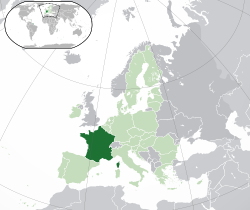
During the Iron Age, what is now Metropolitan France was inhabited by the Gauls, a Celtic people. The Gauls were conquered in 51 BC by the Roman Empire, which held Gaul until 486. The Gallo-Romans faced raids and migration from the Germanic Franks, who dominated the region for hundreds of years, eventually creating the medieval Kingdom of France. France emerged as a major European power in the Late Middle Ages, with its victory in the Hundred Years’ War (1337 to 1453) strengthening French state-building and paving the way for a future centralized absolute monarchy. During the Renaissance, France experienced a vast cultural development and established the beginning of a global colonial empire. The 16th century was dominated by religious civil wars between Catholics and Protestants (Huguenots).
France became Europe’s dominant cultural, political, and military power under Louis XIV. French philosophers played a key role in the Age of Enlightenment during the 18th century. In 1778, France became the first and the main ally of the new United States in the American Revolutionary War. In the late 18th century, the absolute monarchy was overthrown in the French Revolution. Among its legacies was the Declaration of the Rights of Man and of the Citizen, one of the earliest documents on human rights, which expresses the nation’s ideals to this day. France became one of modern history’s earliest republics until Napoleon took power and launched the First French Empire in 1804. Fighting against a complex set of coalitions during the Napoleonic Wars, he dominated European affairs for over a decade and had a long-lasting impact on Western culture. Following the collapse of the Empire, France endured a tumultuous succession of governments: the monarchy was restored, it was replaced in 1830 by a constitutional monarchy, then briefly by a Second Republic, and then by a Second Empire, until a more lasting French Third Republic was established in 1870. By the 1905 law, France adopted a strict form of secularism, called laïcité, which has become an important federative principle in the modern French society.
France reached its territorial height during the 19th and early 20th centuries, when it ultimately possessed the second-largest colonial empire in the world. In World War I, France was one of the main winners as part of the Triple Entente alliance fighting against the Central Powers. France was also one of the Allied Powers in World War II, but came under occupation by the Axis Powers in 1940. Following liberation in 1944, a Fourth Republic was established and later dissolved in the course of the Algerian War. The Fifth Republic, led by Charles de Gaulle, was formed in 1958 and remains to this day. Following World War II, most of the empire became decolonized.
Throughout its long history, France has been a leading global center of culture, making significant contributions to art, science, and philosophy. It hosts Europe’s third-largest number of cultural UNESCO World Heritage Sites (after Italy and Spain) and receives around 83 million foreign tourists annually, the most of any country in the world. France remains a great power with significant cultural, economic, military, and political influence. It is a developed country with the world’s sixth-largest economy by nominal GDP and eight-largest by purchasing power parity. According to Credit Suisse, France is the fourth wealthiest nation in the world in terms of aggregate household wealth. It also possesses the world’s second-largest exclusive economic zone (EEZ), covering 11,035,000 square kilometres (4,261,000 sq mi).
French citizens enjoy a high standard of living, and the country performs well in international rankings of education, health care, life expectancy, civil liberties, and human development. France is a founding member of the United Nations, where it serves as one of the five permanent members of the UN Security Council. It is a member of the Group of 7, North Atlantic Treaty Organization (NATO), Organisation for Economic Co-operation and Development (OECD), the World Trade Organization (WTO), and La Francophonie. France is a founding and leading member state of the European Union (EU).
|






 Francee, officially the French Republic (French: République française), is a sovereign state comprising territory in western Europe and several overseas regions and territories. The European part of France, called Metropolitan France, extends from the Mediterranean Sea to the English Channel and the North Sea, and from the Rhine to the Atlantic Ocean. France spans 640,679 square kilometres (247,368 sq mi) and has a total population of 67 million. It is a unitary semi-presidential republic with the capital in Paris, the country’s largest city and main cultural and commercial centre. The Constitution of France establishes the state as secular and democratic, with its sovereignty derived from the people.
Francee, officially the French Republic (French: République française), is a sovereign state comprising territory in western Europe and several overseas regions and territories. The European part of France, called Metropolitan France, extends from the Mediterranean Sea to the English Channel and the North Sea, and from the Rhine to the Atlantic Ocean. France spans 640,679 square kilometres (247,368 sq mi) and has a total population of 67 million. It is a unitary semi-presidential republic with the capital in Paris, the country’s largest city and main cultural and commercial centre. The Constitution of France establishes the state as secular and democratic, with its sovereignty derived from the people.


